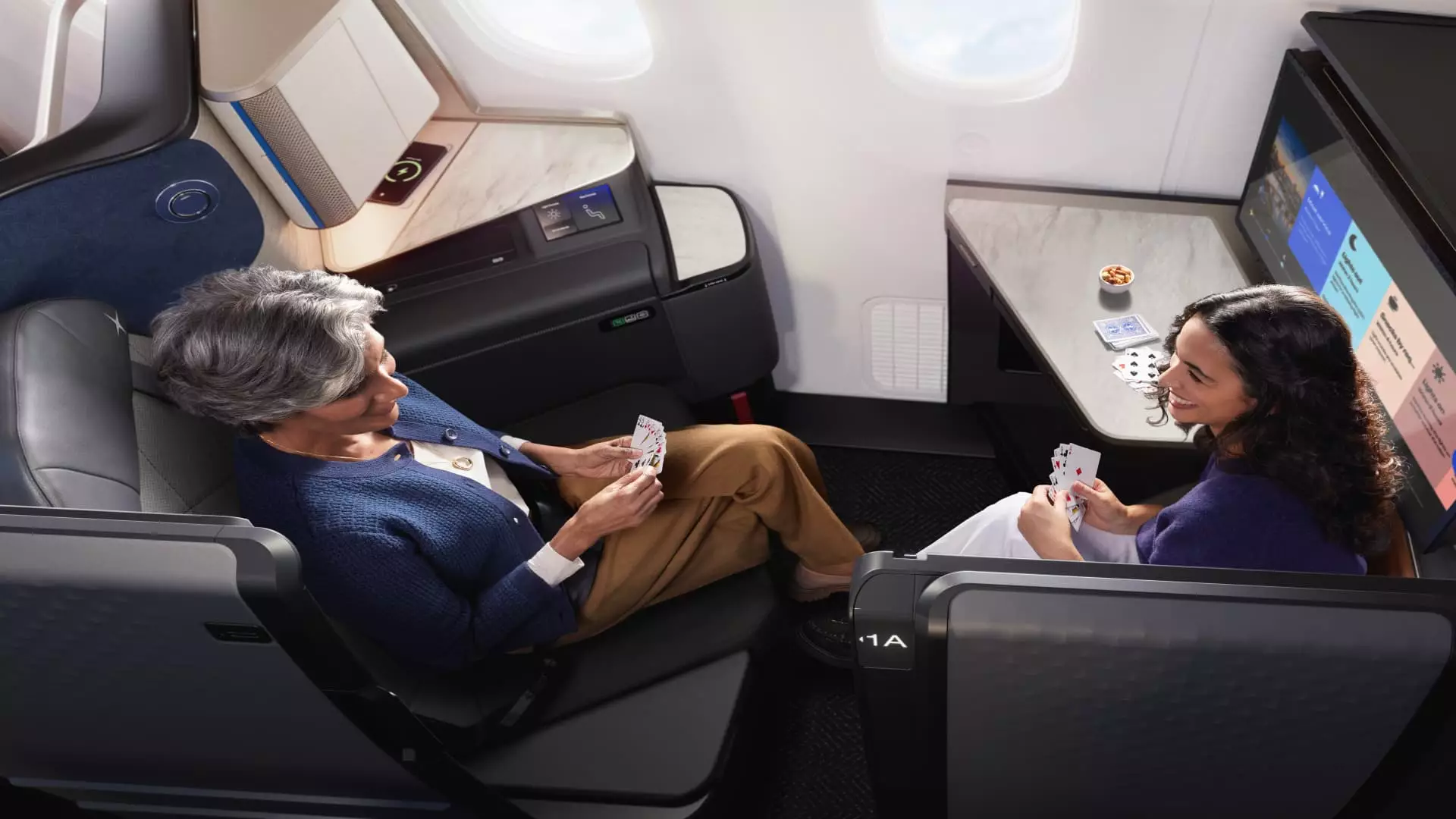As the skies fill with competition, American and United Airlines are leading a fierce campaign to redefine the very essence of luxury travel. They are not merely upgrading their fleets; they are curating unique experiences that promise to cater to the most discerning travelers. The latest offerings are a glimpse into an airline war where business class is becoming a plush battlefield, enticing affluent customers with features that go beyond mere transportation. With amenities like sliding doors, premium sound systems, and fashionable meal presentations, airlines are capitalizing on a longing for comfort that stands in stark contrast to the often-chaotic experience of economy travel.
Yet, before we elevate these offerings to the status of unmatched luxury, it’s vital to consider what’s really happening in the industry. In a world where convenience often prevails, are we witnessing an authentic evolution in air travel, or are we caught in a dazzling marketing trap? Many may find themselves awed by the allure of a “trinket tray” or wireless charging pad but at its core, is it anything truly novel? Perhaps a well-polished veneer is simply hiding the wear and tear of an industry grappling with economic pressures.
Inflated Expectations and Reality Check
American Airlines’ introduction of the “Preferred” suites is accompanied by the promise of 42% more “living area.” Yet, the pricing disparity between these luxurious cabins and the often-meager economy seats (with an example fare of $5,747 juxtaposed against a mere $867) raises essential questions about accessibility. It’s clear that the affluent are being courted aggressively, while the average traveler continues to bear the brunt of ever-increasing airfares without commensurate benefits. These premium cabins are undeniably a spectacle, but for the working-class individual yearning for a pleasant travel experience, they may feel more like a distant dream than a viable option.
Moreover, the pressure to fill seats in economy class remains palpable, even as airlines double down on luxury enhancements. The statement from United’s chief commercial officer that upgrading the product was a reaction to the lack of something better speaks volumes about just how far we have strayed from previous standards—or how little we have actually progressed. The term “premium” has become a euphemism that we willingly accept, yet it begs reevaluation: are we simply being dazzled into complacency?
The Nuances of Perception in Air Travel
As business class transforms, we must ask ourselves what constitutes a meaningful travel experience. For some, the amenities may be a step up, but for others, they simply serve to accentuate the growing divide. With travelers reporting a deteriorating experience in economy cabins—crowded, uncomfortable, and often frustrating—airlines are responding with increasingly extravagant business class options. Therein lies a paradox: by enhancing the elite experience, are airlines essentially admitting that economy travel has become intolerable?
Robert Mann’s astute observation about the declining standard of economy cabins provides valuable insight into why more travelers are opening their wallets for the “premium” experience. A beautifully presented amuse bouche of Ossetra caviar may be enticing, but it’s a symptom of a deeper issue—a necessity to mask the uncomfortable truth of an airline industry that has seemingly relegated the ordinary traveler to lesser service.
Breaking Down the Bling: The Cost of Luxury
While it’s easy to get swept up in the excitement of plush bedding, gourmet meals, and high-tech entertainment options, “luxury” in this context often feels constructed rather than genuinely aspirational. The airlines frequently assert that affluent passengers have remained resilient amid economic uncertainties, yet this may be a flimsy justification for prices that many regular travelers simply cannot afford. As American and United ramp up their investments in premium services, one must consider the consequences: what happens to those who cannot pay the premium?
Moreover, one can’t overlook the irony that amidst this lavish competition, the airlines have chosen to do away with traditional first-class offerings. While airlines may argue that business class is now akin to the former first-class experience, one has to question whether this is progress or merely a shift in naming conventions. If luxury is being redefined to cater only to the void left by first class, what does that say about our evolving expectations?
In contributions both big and small, it’s evident that airlines are engaged in a delicate balancing act. While the race to capture the premium market intensifies, one can only hope that amidst the glitz and glamour, the foundational elements of service do not fade into the background. Air travel should be a shared experience, not a gilded gatekeeping venture. As the industry evolves, let’s not lose sight of the true meaning of travel and the shared experiences that unite us all, regardless of class.

